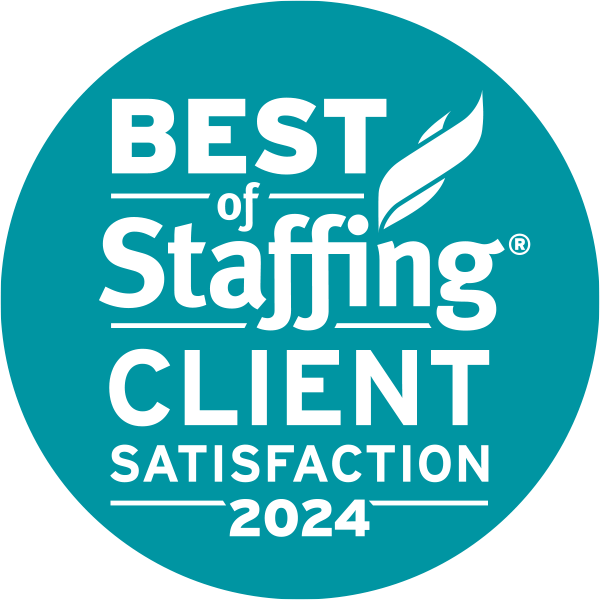
When it comes to job hunting, one of the most critical factors to success is having strong job references. A job reference can make all the difference in helping you stand out from other applicants and land the job you want—but tapping into your professional network can be a tricky task.
In the hiring process, prospective employers want to understand your track record and how you handled past work relationships so they can gauge if you’re a good fit. When done right, asking for a stellar job reference can bolster your confidence and increase your chances of landing a new position. But it’s all about how you approach it and who you ask.
In this blog post, we’re revisiting a topic we’ve covered before: the how-to on collecting high-impact professional references. Here’s our four-step process to success for choosing the right professional references for your job search, and requesting them with tact, style and professionalism.
Step 1: Pick Your People
First up: Identify people with the potential to speak to your qualifications, skills and work ethic. The ideal number of job references is usually three to four, although some employers may request more or fewer. It’s best to check the job posting or contact the employer directly to determine how many references they require.
When it comes to selecting job references, choose people in your network who are relevant to the job you want. If there are people from your education or career history who aren’t “officially” in your network, remedy that with a quick LinkedIn request or email to restore the connection. Lastly, don’t limit yourself to former employers.
Professional references can be any of the following (and more):
- Former managers
- Former or current co-workers
- Former clients
- Mentors
- Community leaders and/or volunteer partners
No matter who you call on as a reference, it’s all about finding people who can confidently speak to your strengths, work ethic, collaboration, and other qualities that are valued in your field. Above all, this cheerleader for your career growth should be able to speak to your authentic character and the real experience of working with you. This helps your prospective employer confirm your skills, accomplishments, and ability to work well with others, as well as your personality fit for their team culture.
Step 2: Prepare to Request Job References
Before requesting job references, prepare yourself and your references with adequate notice. The sooner you can request a reference, the better to ensure your references have plenty of time to craft a thoughtful response without feeling rushed or put on the spot.
To make the process as smooth as possible, we recommend providing your prospective references with the materials you need, like your current resume, a list of your accomplishments, and a summary of the job posting. The more relevant information you can provide, the easier it will be for them to craft a strong reference.
It’s also worth noting that if you’re early in your career, you may not have much of a professional track record. That’s okay! We all have to start somewhere, right? You can still provide strong character references by reaching out to folks like teachers, coaches and classmates—or even neighbors or community members who can attest to your reliability, trustworthiness and positive attitude.
Step 3: Ask and Receive
Now that you know who you want to vouch for your skills and expertise, it’s time for outreach.
Email, phone calls, and in-person meetings are all appropriate methods for requesting job references—but choose the method that you are most comfortable with and that best fits your relationship with the person.
When making a reference request, use warm and polite yet professional language. Be yourself. In fact, staying true to who you are throughout your job search will be your best bet in landing a job that aligns with you at your core.
If you find yourself staring at a blinking cursor, don’t hesitate to use templates online as a starting point, like this request template from Indeed. Tools like these can act as a supportive starting point for what you want to say, with wiggle room to adjust the language based on your unique voice and tone.
In the event one of your prospects can’t provide a reference, be gracious and respectful. Remember that people have good reasons for not providing a reference, and it’s not a reflection of your abilities or qualifications.
Step 4: Follow Up and Staying in Touch
Last but certainly not least, don’t forget to follow up on that initial outreach and thank them for their support, regardless of the outcome. Sending a thank-you note or email is a simple and effective way to show your appreciation and demonstrate your professionalism. Nurture this relationship as you may need to lean on it in the future. Also, consider letting them know the results. Once they’ve had a conversation with the hiring manager, they’ll be curious to know the outcome themselves.
In addition to sincerely thanking these colleagues for lending time, energy and effort to your job search, be sure to prioritize staying in touch. Building a strong, genuine rapport takes a consistent investment throughout your career. But it can be as simple as sending a periodic email, leaving a glowing recommendation on LinkedIn, or scheduling quarterly coffee chats. A little intentionality really does go a long way.
Experience the Peoplelink Difference for Your Next Job Search
A strong job reference can be the difference between a job offer and a rejection letter. Taking the time to build strong professional relationships will pay off in the long run—not just when you’re actively making your next career move, but for your overall professional development as well as your network.
Partnering with an industry-leading staffing firm is like having a professional reference cued up and ready at any time. Connect with us today to get more expert guidance on your entire job search, from applying to interviewing and beyond.


